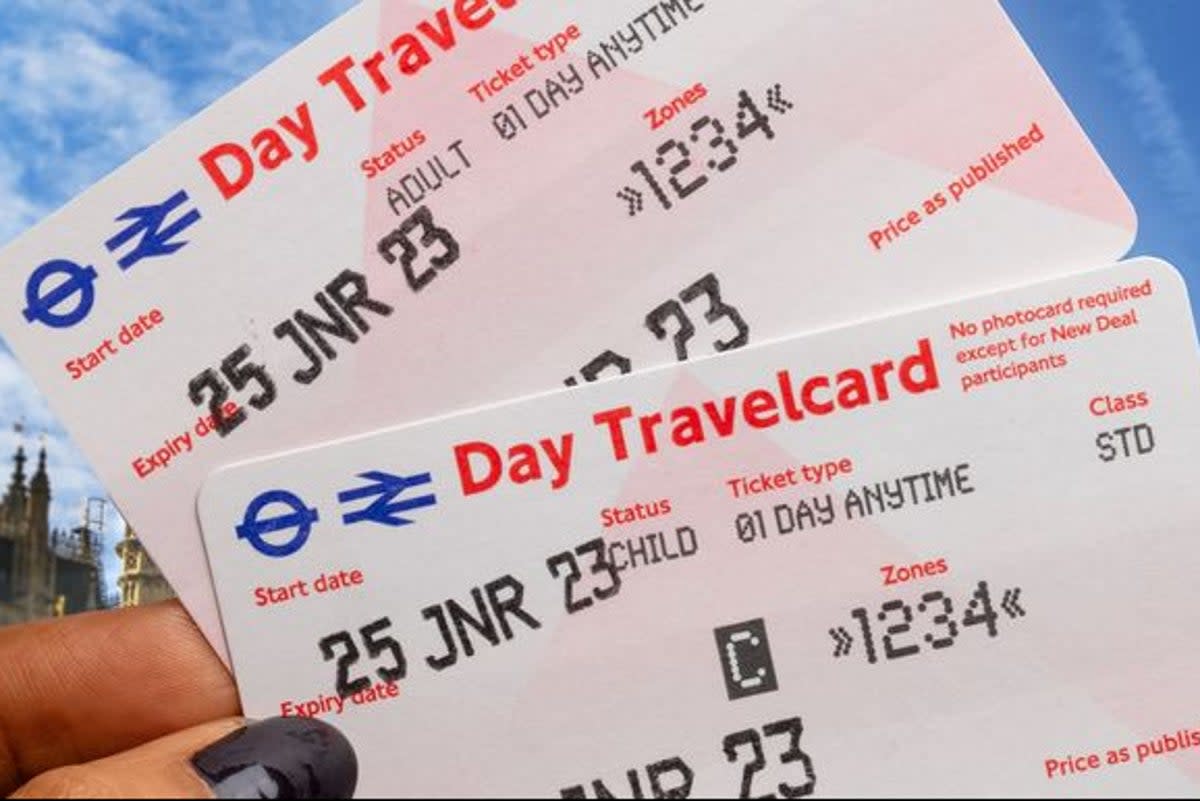One-day Travelcard saved as TfL strikes deal with train operators

The one-day Travelcard has been saved, Transport for London announced on Tuesday.
TfL has struck a deal with train firms to retain the ticket, which is used more than 14 million times a year by people visiting the capital.
However the cost of the one-day Travelcard, which offers train passengers unlimited travel on the Tube and London bus network, will increase by a one-off levy of about three per cent next March, in addition to the annual fares rise, to help cover the cost of the new deal.
In July, Mayor Sadiq Khan had begun the six-month process of withdrawing from the Travelcard agreement, which he said cost TfL £40m a year in lost fares.
But he faced a huge outcry from transport campaigners and local authorities across the Home Counties , who said the one-day Travelcard was an invaluable way of attracting visitors to London on public transport and reducing car use.
A source close to the mayor said: “Agreement has now been reached by all sides to keep the daily Travelcard.
“There’s been a lot of back and forth between TfL, Rail Delivery Group and Government in recent weeks and a good compromise has been found.
“TfL were effectively £40m out of pocket every year, funding passengers outside London at a time when their budgets remain under huge pressure. The agreement provides a fairer deal for TfL and Londoners.”
Rail minister Huw Merriman said: “The Travelcard is an invaluable way of encouraging commuters and visitors to travel into London, hugely boosting the economy in the process – I’m pleased that following a Government intervention, working with TfL and the train operators, we were able to save it."
Norman Baker, from the Campaign for Better Transport, said: "This is a greatdecision for sustainable transport and the people who use it, and a happy dayfor our capital and its businesses.
"Costly and complicated fares are a barrier for too many people when deciding how to travel, so the Day Travelcard is just the sort of simple, integrated ticket that we need across the country if we want to make public transport the easy.
"Since we launched our campaign to save the Travelcard, hundreds of people have got in touch to tell us how much they value it, including families with children, teens travelling with youth groups, people with disabilities, people struggling with the cost of living, and people who don't use contactless or mobile payments. They will breathe a sigh of relief today."
Last month the Standard revealed that rail passengers faced a “double whammy” of fare hikes if the one-day Travelcard was withdrawn from January.
Its loss would have increased off-peak fares into London by about seven per cent – to be followed in March by the annual rise in train, Tube and bus fares, which is expected to result in prices increasing by about eight per cent.
Axing the Travelcard would have meant travellers would have had to buy a national rail ticket and then use Contactless or Oyster cards to travel on public transport within the capital.
But its retention means they can switch between train, Tube and bus using a single ticket.
About half of the 14.2m Travelcards issued each year are used by children, young people, families, disabled passengers and pensioners.
Paul Bowden, commercial director at the Rail Delivery Group, said: “I think it is a great outcome for customers that we’re able to keep this popular ticket, which offers customers complete travel flexibility in London.
"There has been a huge amount of work behind the scenes, with the industry working together with a firm focus on customers’ interests."
Mr Khan said: “As part of the Covid-19 financial deal TfL made with the Government, there is a requirement to make savings of £600m. I refused to countenance removing weekly, monthly or season travelcards and today I am pleased to confirm the Day Travelcard is also now safe.
"The offer now on the table saves a much-valued product for visitors to London, while giving TfL a fairer share of ticket revenue.”
A campaign led by the Campaign for Better Transport was backed by about 20 organisations including Surrey County Council, Luton, Medway, Slough, Watford and Wokingham councils, London TravelWatch, the Federation of Small Businesses and the Night Time Industries Association.
City Hall said Mr Khan had been forced to consider the withdrawal of the day Travelcard due to the requirement for TfL to generate extra income to enable it to break even this financial year, while also making substantial savings.
It said that under the previous arrangement, Londoners were effectively subsidising the cost of travel for people living outside the capital.


